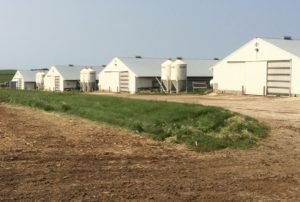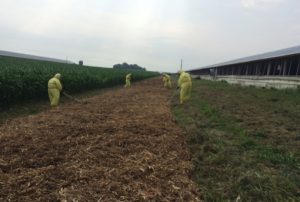2015 Annual Report
University of Maine Cooperative Extension Knox & Lincoln Counties
2015 Annual Report
Putting university research to work in homes, businesses, farms and communities for over 100 years.
The University of Maine is an equal opportunity/affirmative action institution.
Download a print-friendly copy of the 2015 Annual Report (PDF)
Knox-Lincoln County Extension Association
Executive Committee 2016
- Joseph Lobley, President
- Robert Lamothe, Vice President
- Andrea Magnuson Denny, Secretary
- Joanne Sewall, Treasurer
- David Bosken
University of Maine Cooperative Extension seeks volunteers to serve on the Knox-Lincoln Counties Executive Committee.
UMaine Extension can only be successful with the help of county residents serving on the Executive Committee. Board members provide oversight and support to staff as well as help promote programs.
Knox-Lincoln Extension is one of the most active in the state providing a broad range of programs: 4-H youth development, farm to school programs educating kids on healthy food choices, assistance to commercial farmers and home gardeners, support for fishermen facing impacts due to warming temperatures in the Gulf of Maine, ongoing monitoring of coastal water quality and in home education for new parents.
Executive Committee members are asked to attend only four two-hour meetings a year focusing on county finances, building maintenance and programming. Members can certainly follow their interests and become more involved in any of the county programs.
If you’re interested in UMaine Extension Programs and giving back to your community, serving on the Executive Committee is a great place to be! For more information, please contact Keri Kaczor 207.832.0343, in Maine 800.244.2104 or email keri.kaczor@maine.edu.
UMaine Extension Knox-Lincoln Counties Staff
377 Manktown Road
Waldoboro, ME 04572-5815
207.832.0343 or 800.244.2104 (in Maine)
Fax: 207.832.0377
extension.knoxlincoln@maine.edu
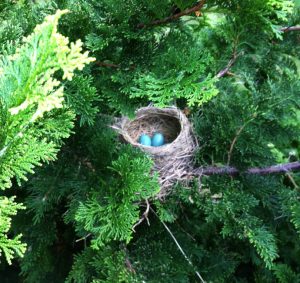
Extension Educators
- Mark Hutchinson
- Esperanza Stancioff
Professionals
- Jennifer Doherty
- Heather Elowe
- Ruth Griffin
- Keri Kaczor
- Heather Knowles
- Elissa Koskela
- Brooke Sanborn
- Meagan Sims
- Claudia Williamson
- Corinne Wilson
Community Education Assistants
- Adrienne Randall
- Cindy Rogers
- Liz Stanley
Administrative Specialists
- Pamela Doherty
- Cindi Staples
President’s Message
It has been another busy year for the Knox-Lincoln County Cooperative Extension team! The hardworking educators, professionals and support staff provide a diverse array of research-based programs described in this report, and many more, to the residents of Knox and Lincoln Counties. From agriculture to climate change, environmental health and safety, to youth development and support of families, it is hard to find a sector of our local community that is not reached!
The University of Maine Cooperative Extension is just that, a cooperative between the University and the residents of Maine, in our case Knox and Lincoln Counties. This agreement is now a century old, a clear indicator that this relationship of mutual benefit is a success!
It is an agreement that relies on the support of the community as well. The Knox-Lincoln Counties Cooperative Extension Executive Committee (EC) is responsible for submitting the budget to the counties for approval, watching over the finances and the maintenance of the Extension office, as well as assisting with programs. This group is made up of volunteers that work closely with the educators and professionals to make sure this relationship within our community continues to thrive and grow. We also have a small army of community volunteers that provide time and expertise to our programs. We are grateful for this community support, which is invaluable to our success.
We are pleased to announce an exciting Annual Meeting event open to the public at Aldermere Farm on Wednesday, September 14th starting with a tour of the farm at 5pm, followed by refreshments and presentations on 4-H youth and teen programs, as well as historical and current workings of the farm from Ron Howard. This is a great opportunity to learn first hand about our many community-based programs. We hope to see you there!
— Joe Lobley, KLCEA Executive Committee President
UMaine Extension Knox-Lincoln Counties Financial Resources
This graph illustrates the financial resources for programs offered, supported, and managed from the UMaine Extension Knox & Lincoln Counties office. Each year, Knox & Lincoln Counties tax dollars support UMaine Extension with physical office space, support staff salaries, office supplies, equipment, and programming expenses.
As a unique partnership among federal, state, and county governments, UMaine Extension uses funding from Maine counties and the University to match and leverage support from the United States Department of Agriculture, other federal grantors, state agencies, and private foundations. Each UMaine Extension county office is also part of a statewide organization and the national Extension system.
4-H Youth Development
Information: cynthia.rogers@maine.edu
The Knox-Lincoln 4-H Program had 149 members, 8 clubs, and 30 volunteers enrolled in 2015.
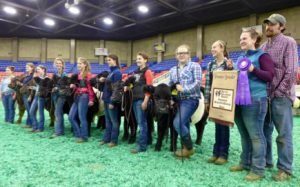
Aldermere Achievers 4-H Club
After successfully raising $17,000 for their trip, the Aldermere Achievers 4-H Club (Rockport) and their cattle traveled to Kentucky in November to compete at the National Belted Galloway Show. The youth not only showed against youth from around the country in the Junior Show, they also showed Aldermere Farm cattle against mostly adult professional cattle “Fitters” in the National Belted Galloway Society’s Open Show. The 4-H members won numerous classes and achieved the Premier Breeder award for Aldermere Farm.
STEM Guides Project-Central Lincoln County Hub
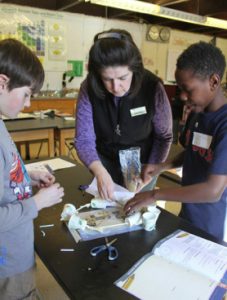
4-H Community Education Associate, Cindy Rogers has spent part of her time this year working in the STEM Guides Project-Central Lincoln County Hub. 4-H has collaborated with the Maine Math and Science Alliance to connect youth in the Central Lincoln County area to fun and interesting opportunities in science, math, engineering and technology (STEM). Ryan LeShane, Director of Blueberry Cove 4-H Camp and Learning Center in Tenant’s Harbor is also involved in this project.
2016 4-H Achievement Awards Celebration
Over 100 people attended the 2016 4-H Achievement Awards Celebration at Beaver Lodge in Hope in October. 4-H members submitted 49 Project Records/Portfolios for judging. Project subjects ranged from livestock to computer technology, personal development to veterinary science. Special awards were presented to members in recognition of their Community Service, Leadership and for being a Team Player. Volunteer and Extension Executive Committee member, Maurice Miller was recognized for 25 years of service to the 4-H program.
Parent Education
 Information: jennifer.d.doherty@maine.edu
Information: jennifer.d.doherty@maine.edu
Maine Families Home Visiting
Brain science and current research such as the Adverse Childhood Experiences Study (ACES) inform us that investment in young children starting in pregnancy through the first three years of life can lay the foundation for future success and well-being. The University of Maine Cooperative Extension works in collaboration with the Teen and Young Parent Program of Knox County to support families during this critical time with the goal to promote healthy growth and development, positive parenting, educational readiness and family well-being. State and Federal Funding from the Maternal, Infant, and Early Childhood Home Visiting Grant (MIECHV) support seven certified parent education professionals to deliver the Maine Families Program in the Mid Coast Area.
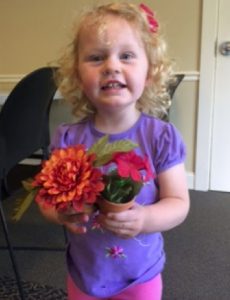 Utilizing the evidenced-based model, Parents As Teachers™ (PAT), our Maine Families team partnered with parents who were pregnant or had a newborn at home and provided 2,003 home visits serving 238 families and 264 children in Knox, Lincoln, and Sagadahoc Counties. Our team also facilitated 24 playgroups at local libraries and 18 community volunteers provided over 300 hours of service in support of our program. 96% of families reported their parent educator helped them find useful services in their community. 99% of enrolled families reported they feel better about their parenting and understand their child’s growth and development after participating in Maine Families.
Utilizing the evidenced-based model, Parents As Teachers™ (PAT), our Maine Families team partnered with parents who were pregnant or had a newborn at home and provided 2,003 home visits serving 238 families and 264 children in Knox, Lincoln, and Sagadahoc Counties. Our team also facilitated 24 playgroups at local libraries and 18 community volunteers provided over 300 hours of service in support of our program. 96% of families reported their parent educator helped them find useful services in their community. 99% of enrolled families reported they feel better about their parenting and understand their child’s growth and development after participating in Maine Families.
“A wonderful program that helped me feel more confident as a parent.”
Climate Change
Information: esp@maine.edu
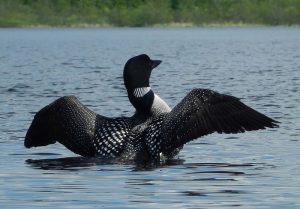
Since 2010, Signs of the Seasons (SOS) has trained 600 volunteers statewide to track seasonal changes in 19 climate indicator species. In 2015, we trained 94 new SOS observers. Now in our sixth year, the program is well on its way to building a detailed record of the region’s seasonal turns. Participants have a greater awareness of the local impacts of global climate change, and a greater interest in sharing their knowledge.
The Northeast Coastal Acidification Network (NECAN) is the Northeast’s leading organization for the synthesis and dissemination of regional ocean acidification data and information. In 2015 we conducted a state of the science workshop and six stakeholder workshops. NECAN won the Northeast Sea Grant Consortium Outstanding Outreach Achievement Award, and produced an educational O’Chang video with Maine Sea Grant and UMaine Extension.
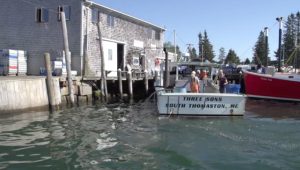 Our participatory research project with a midcoast lobster community was completed with a final community meeting resulting in ideas for continued work on the economic model produced as a policy tool for the industry. The project was selected by the National Oceanic and Atmospheric Administration as a case study and highlighted by the production of a video.
Our participatory research project with a midcoast lobster community was completed with a final community meeting resulting in ideas for continued work on the economic model produced as a policy tool for the industry. The project was selected by the National Oceanic and Atmospheric Administration as a case study and highlighted by the production of a video.
Maine Healthy Beaches
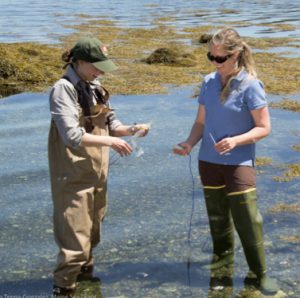
Information: keri.kaczor@maine.edu
www.mainehealthybeaches.org
Maine Healthy Beaches (MHB) is coordinated by UMaine Extension, and is the state’s only unified, quality-assured structure for monitoring water quality and protecting public health on Maine’s valued coastal beaches.
In 2015, Extension staff trained nearly 200 citizen scientists to collect and report data for beaches spanning Kittery to MDI. The Knox-Lincoln Counties Extension office provides laboratory analysis for Lincolnville, Camden, Rockport, Rockland and S. Bristol. Additionally, MHB has successfully worked with partners to identify and address sources of fecal contamination in marine and freshwater systems.
Overall, the beach season was dry with lower bacteria levels recorded in 2015 compared to previous rainy summers. Bacteria issues are often driven by rainfall that washes the land, transporting contaminants to the shoreline via stormwater runoff. The typical problems areas are where the rivers, streams, and storm drains meet the sea.
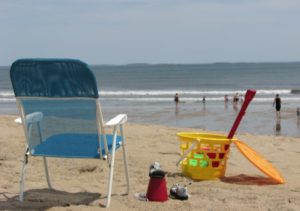
Please do your part to stay healthy and keep Maine’s beaches clean:
- Do not swim if the beach is posted
- Avoid the water for at least 1 or 2 days after heavy rainfall
- Maintain and pump out your septic system
- Report illicit discharges to your local code enforcement
- Pump out boat waste
- Use swim diapers
- Do not feed birds or wildlife; pick up pet waste
- Plant/maintain buffers along waterways
- Share the knowledge; we’re all in this together!
Home Horticulture
Information: elizabeth.stanley@maine.edu
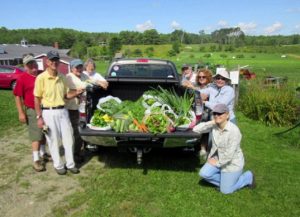
National Master Gardener Volunteer Program
The Extension Master Gardener National Committee reports that last year more than 80,000 volunteers in 49 states contributed time valued at $122 million. It’s estimated they donate 1,382 tons of fresh produce to food banks and pantries annually and are involved in 6,000 community gardens.
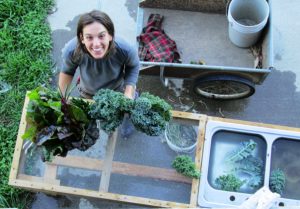
Maine Master Gardener Volunteers and community members donated 157 tons of food in 2015. That’s 11% of the 2014 national total, with just 0.4% of the nation’s population. Other projects include school and community gardens, civic beautification, invasive plant and insect monitoring, phenology data collection, and educational programs.
Home and Community Client Calls
We received over 500 questions from home, school, and community gardeners in 2015. They inquired about pests, diseases, invasive plants and insects, soil testing, and how to grow vegetables, fruits, and ornamentals. We provided plant, insect and tick IDs, resources, trainings, and expert advice from specialists.
Commercial Agriculture
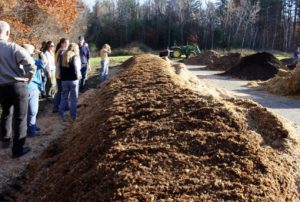
Information: mhutch@maine.edu
The deadliest animal disease outbreak ever in the United States occurred in 2015. High Pathogenic Avian Influenza affected 213 farms and 40.9 million chickens and turkeys died in central United States. Faculty at Knox-Lincoln Cooperative Extension and Maine Compost Team provided composting technical assistance to United States Department of Agriculture (USDA) for the disposal of many of these birds that were composted.
With funding from the USDA, a High Pathogenic Avian Influenza (HPAI) compost subject matter expert training was developed and held in Maine. The training was held at the University of Maine Compost Research and Education Center in Monmouth, Maine with 22 USDA veterinarians and technicians attending. In addition four state of Maine Department of Agriculture and Forestry employees participated. This work has helped local producers be better prepared if HPAI was to occur in Knox-Lincoln Counties.
- Turkey Farm Complex: Iowa , USA.
- Preparing a carbon base for the disposal of poultry carcasses during the 2015 Avian influenza disease outbreak. Iowa, USA.
The County Extension Act
The County Extension Act explains the role of county government in funding local Extension offices.
Cooperative Extension work shall consist of the giving of practical demonstrations in agriculture and natural resources, youth development, and home economics and community life and imparting information on those subjects through field demonstrations, publications and otherwise. For the purpose of carrying out this chapter, there may be created in each county or combination of two counties within the State an organization known as a “county extension association,” and its services available to all residents of a county. The county extension is viewed as a unique and important educational program of county government. The executive committee of each county extension association shall prepare an annual budget as requested, showing in detail its estimate of the amount of money to be expended under this chapter within the county of counties for the fiscal year. The executive committee shall submit to the board of county commissioners on a date requested by the county commissioners, and the county commissioners may, if they deem it justifiable, adopt an appropriate budget for the county extension program and levy a tax therefore. The amount thus raised by direct taxation within any county or combination of counties for the purposes of this chapter shall be used for the salaries of clerks, provision of office space, supplies, equipment, postage, telephone, a contribution toward the salaries of county educators and such other expenses as necessary to maintain an effective county extension program.1
1Excerpted from Title 7, Chapter 7 of the Maine Revised Statutes, §191–§195.
UMaine Extension Resources for Gardeners
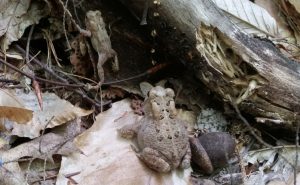
- Garden & Yard
- Pest Management — Insects, Ticks, Plant Diseases
- Master Gardener Volunteers
- MGV Manual
Other Resources
For more information contact
University of Maine Cooperative Extension
Knox-Lincoln Counties
377 Manktown Road
Waldoboro, ME 04864
207.832.0343 or 800.244.2104 (in Maine)
extension.knoxlincoln@maine.edu
University of Maine Cooperative Extension’s successful educational programs result from a federal, state and county government partnership. Since 1919, when the Maine Legislature passed the County Extension Act, the University of Maine has been in all Maine communities with a county office whose operations are funded by county government. Our educational programs anticipate and respond to local and state needs and issues. We also communicate those issues and opportunities to UMaine faculty to influence their research and development plans.
©2016
The University of Maine does not discriminate on the grounds of race, color, religion, sex, sexual orientation, including transgender status and gender expression, national origin, citizenship status, age, disability, genetic information or veteran status in employment, education, and all other programs and activities. The following person has been designated to handle inquiries regarding nondiscrimination policies: Director, Office of Equal Opportunity, 101 North Stevens Hall, Orono, ME 04469, 207.581.1226.


